
Workshop on History and Reality of South China Sea 2025 Held in Beijing
2025-08-05 21:56:09 source:NISCSS
On July 10, the International Academic Symposium "Workshop on History and Reality of South China Sea 2025", co-hosted by the Huayang Center for Maritime Cooperation and Ocean Governance (Huayang Center) and the National Institute for South China Sea Studies (NISCSS) was held in Beijing. More than 150 experts, scholars, and institutional representatives from over ten countries and regions – including China, Malaysia, the Philippines, Indonesia, Singapore, South Korea, the United Kingdom, Canada, Russia, and Germany – attended the conference.
Participants engaged in in-depth discussions and exchanges on topics such as "Post WWII International Order and Sovereignty over Nanhai Zhudao", "History of the South China Sea from Political and Legal Perspectives", and "Re-evaluation of the South China Sea Arbitration Award."
Diplomats from the embassies of Malaysia, Vietnam, the Philippines, Brunei, Thailand, Cambodia, Singapore, Japan, South Korea, the United Kingdom, the United States, New Zealand, Mexico, the European Union, and other countries and international organizations in China also attended the event.
Wu Shicun, Chairman of the Huayang Center and Chairman of the Academic Committee of NISCSS, and Li Guoqiang, Deputy Director of the Chinese Academy of History and Member of the Academic Divisions of the Chinese Academy of Social Sciences, delivered keynote speeches.
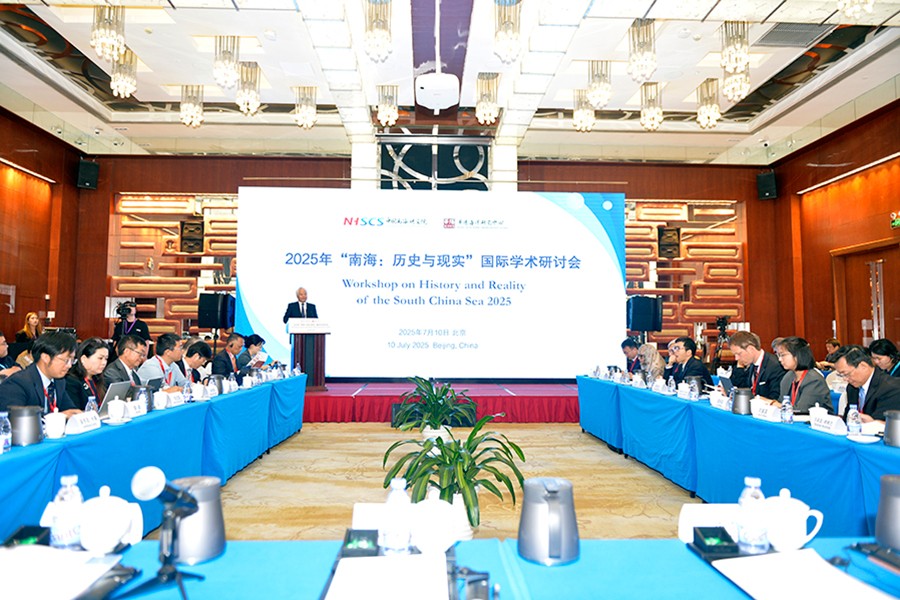
Wu Shicun emphasized that China's sovereignty over the South China Sea islands is supported by solid historical and legal grounds. The Chinese people have exercised administration and jurisdiction over the South China Sea since ancient times. After World War II, China lawfully recovered the islands in 1946 in accordance with the Cairo Declaration and Potsdam Proclamation, and publicly announced the recovery to the world.
He pointed out that the root causes of the current disputes lie in the illegal occupation of certain islands and reefs by the Philippines, Vietnam, and others starting in the 1970s, compounded by overlapping claims under modern maritime law. Wu Shicun identified three major challenges currently facing the South China Sea situation:
1. U.S. intervention has intensified tensions. Under the pretext of "Freedom of Navigation", the U.S. has strengthened its military presence and supported unlawful claims by other countries.
2. Escalating violations by claimant states, particularly the Philippines, has provoked incidents at Ren'ai Jiao (Second Thomas Shoal) and introduced intermediate-range missile systems, posing a threat to regional security.
3. Stalled progress in the Code of Conduct (COC) consultations, as extra-regional forces exploit the illegal arbitration ruling to obstruct the negotiation process and undermine efforts by China and ASEAN to manage crises.
Wu Shicun also refuted the 2016 South China Sea Arbitration Award, and pointed out that it was entirely illegal and invalid due to serious flaws in jurisdiction, tribunal composition, legal reasoning, factual findings, and evidence handling. He argued that the award has become a "troublemaker undermining stability in the South China Sea."
Wu Shicun called on regional countries to jointly uphold the post-WWII international order, resist external interference, accelerate the COC negotiation process, and build a community of shared future in the South China Sea through practical maritime cooperation.
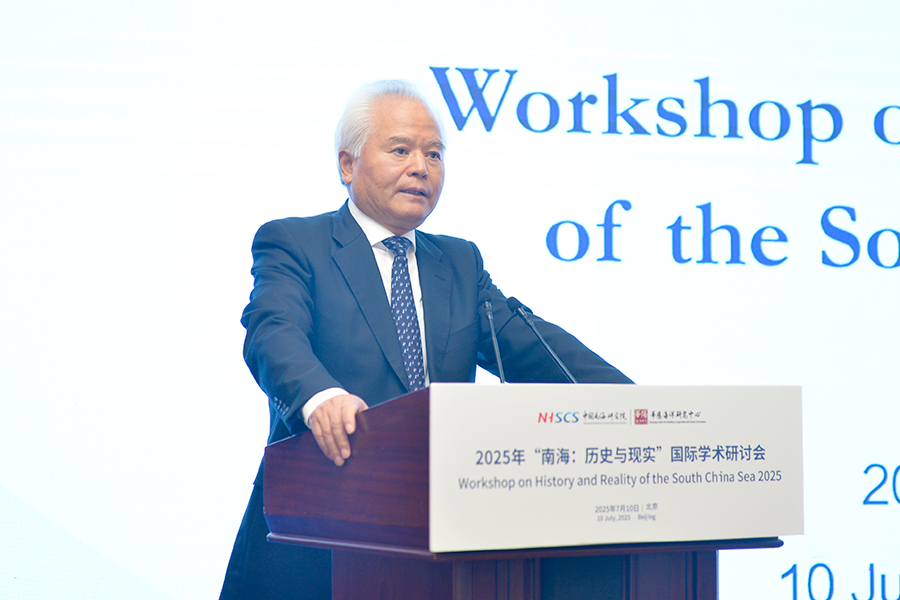
Wu Shicun, Chairman of the Huayang Center and Chairman of the Academic Committee of NISCSS delivered keynote speech.
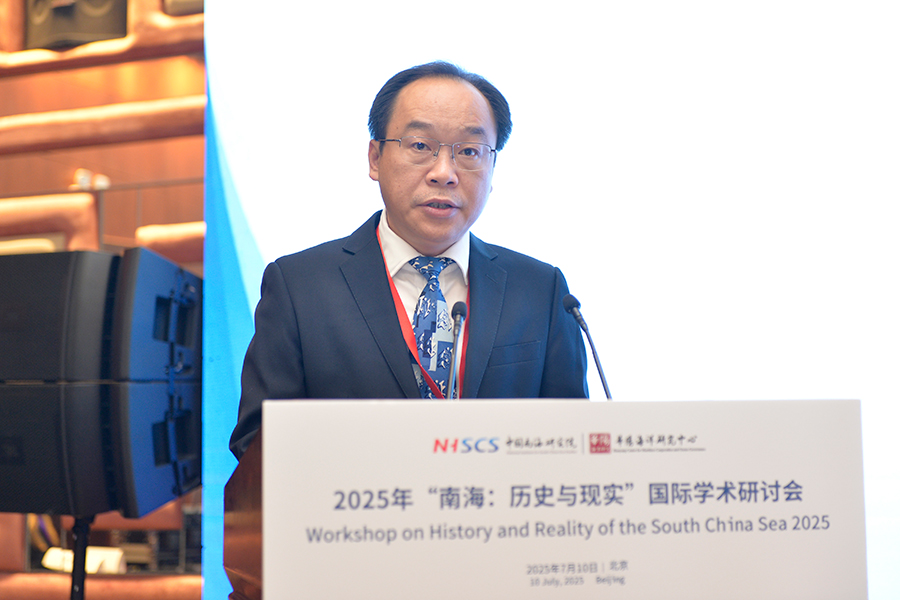
Han Jinglei, Vice President of NISCSS delivered closing remarks.
Li Guoqiang pointed out that the victory in World War II 80 years ago brought an end to Fascist Japan's illegal occupation of the South China Sea islands. This outcome, affirmed through a series of significant international treaties, confirmed China's sovereignty over the South China Sea islands. The Chinese government successfully reclaimed these islands with broad support from the international community.
He emphasized that history is the root of reality, and reality is the continuation of history. Only by understanding where the South China Sea issue originated, can we comprehend why the situation today is what it is - and not something else - and gain clarity about where the South China Sea is heading, and where it is not.
Li Guoqiang concluded by saying that a sea of peace, friendship, cooperation, and goodwill was the original state of the South China Sea, and that it should likewise reflect the aspirations of our era.
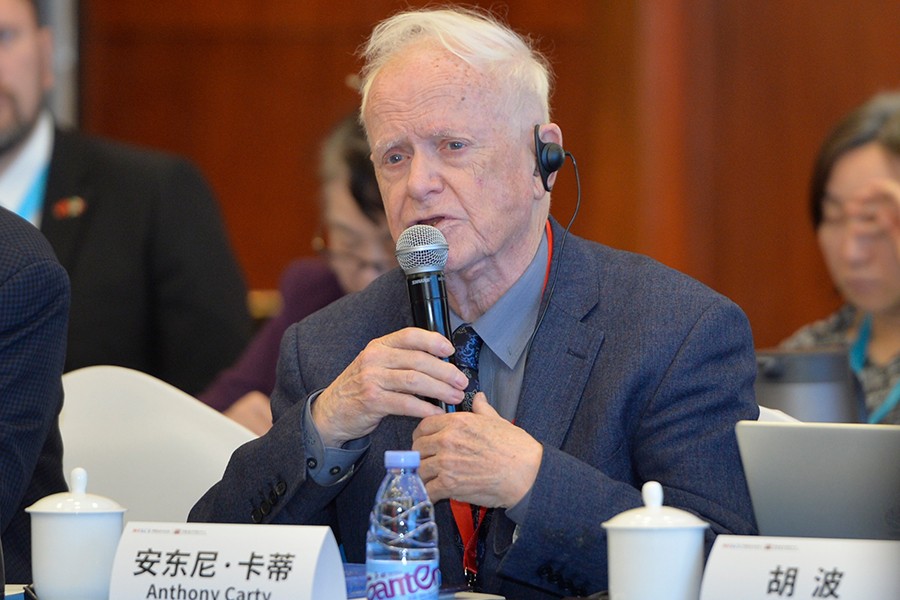
Anthony Carty, Emeritus Professor of Law at the Beijing Institute of Technology spoke at the conference.
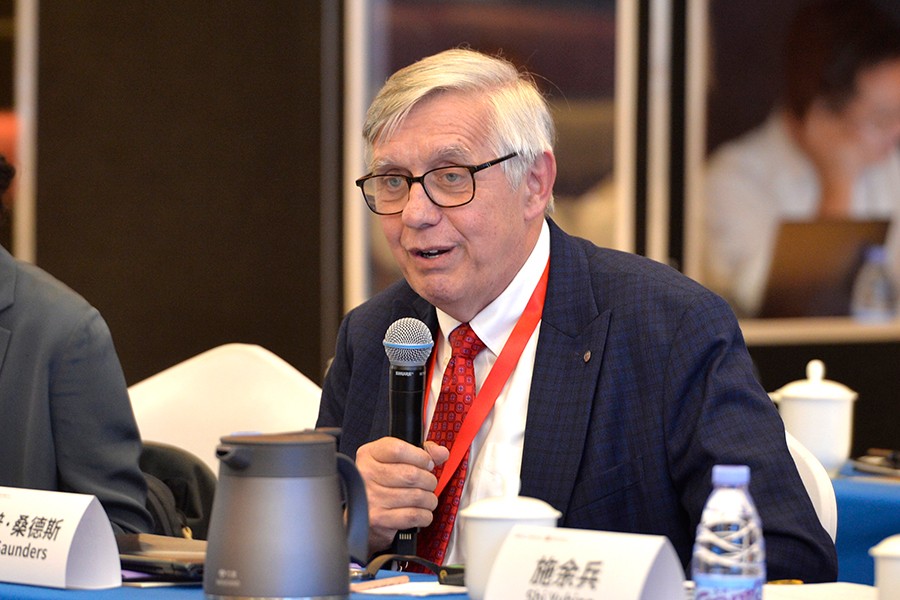
Phillip Suanders, Dean Emeritus and Adjunct Professor of the Schulich School of Law at Dalhousie University of Canada spoke at the conference.
During the conference, Wu Shicun and other experts and scholars were interviewed by both domestic and international media outlets, including Xinhua News Agency, People's Daily, CCTV, CGTN, Global Times, Phoenix TV, South China Morning Post, Lianhe Zaobao, and Taiwan's Central News Agency.
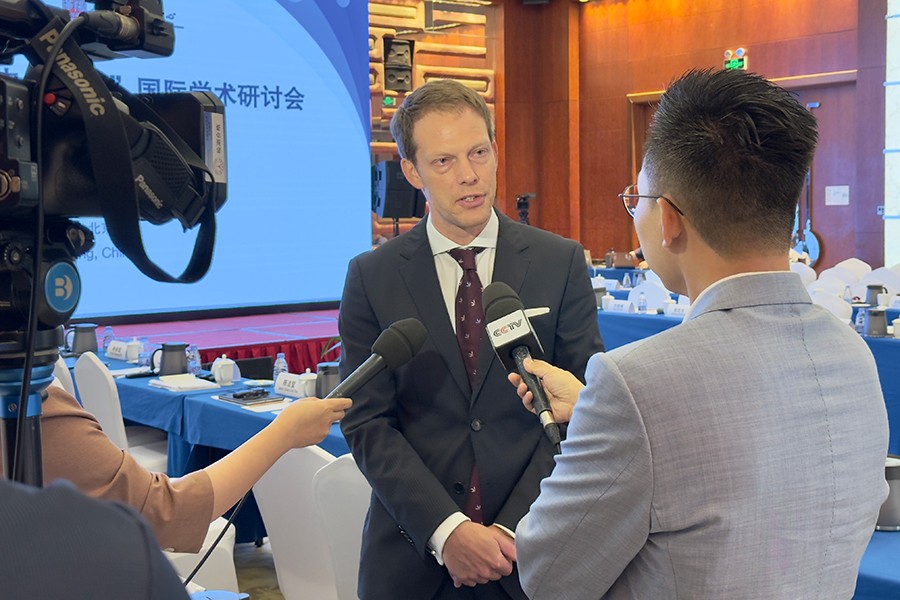
Christian Schultheiss, Senior Research Fellow of the Max Planck Institute for Comparative Public Law and International Law of Germany received interview during the conference.
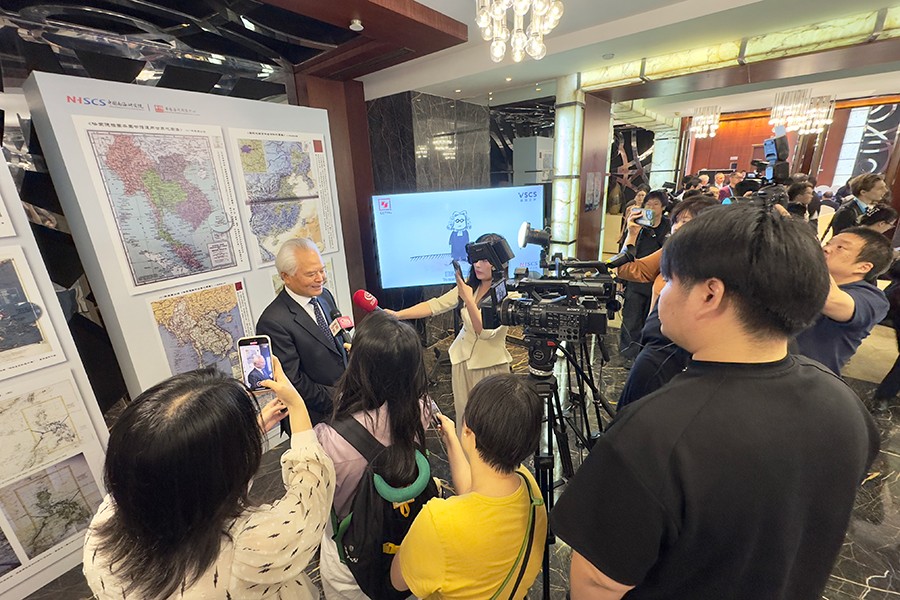
Wu Shicun received exclusive media interview during the conference.
